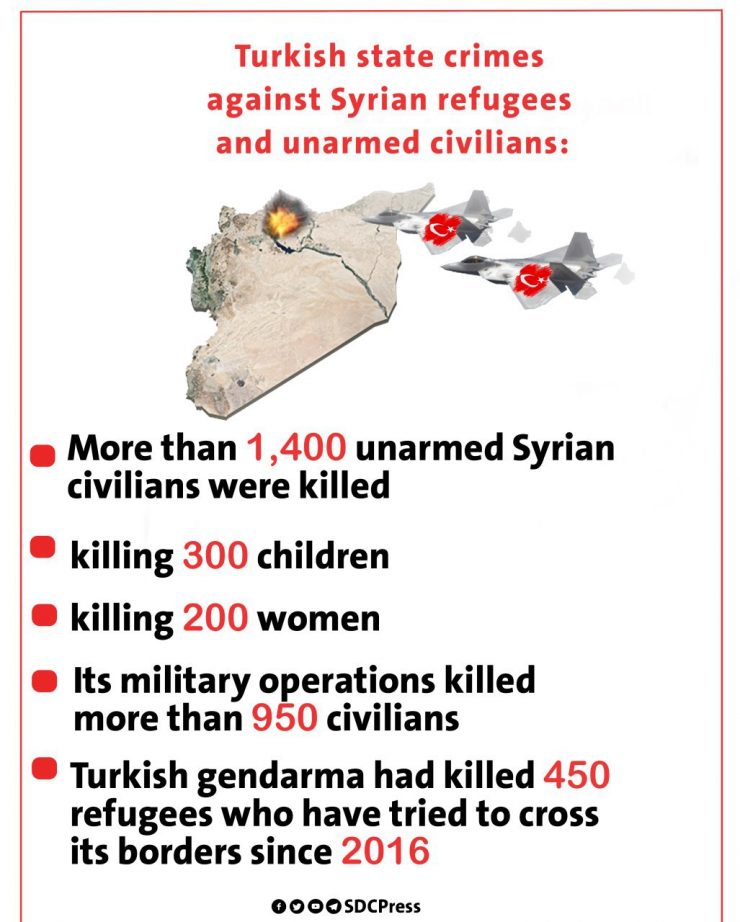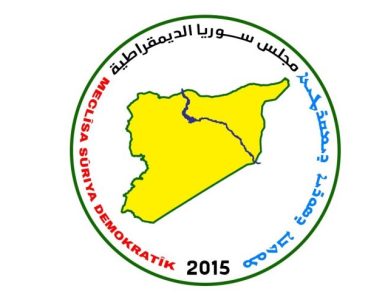International human rights organizations have documented the human losses in Syria resulting from the bombing of Turkish forces and their aircraft to date in addition to the border guards, which amounted to more than 1,400 unarmed Syrian civilians, and among the dead were approximately 300 children and 200 women.
The figure includes more than 950 Syrians killed by the Turkish army in its military operations in the Syrian north, in addition to 450 Syrian refugees who have tried to cross the Syrian-Turkish border since 2016.
Tens of thousands of civilians have been displaced and displaced due to Turkey’s military operations in Syria, amid dramatic humanitarian situations that have escalated in the country, ethnic cleansing and demographic reshaping and genocide, which Ankara continues to carry out in areas occupied by its forces in cooperation with its mercenary factions.
And spread in the areas of the Turkish occupation crimes of rape, looting, plunder, ransom, extortion, rape, prostitution, beatings, environmental destruction, looting of factories and antiquities, all of which became part of daily life.
And human rights organizations have warned on many occasions that the Turkish border guards “gendarma” will continue to kill and torture Syrian refugees and displaced persons on the Turkish-Syrian border, fleeing from the scourge of war and seeking safety.
The Turkish army deployed along the Turkish-Syrian border, with live bullets, targets anyone who tries to approach the border.
Several human rights organizations have documented targeting civilians by the Turkish border guards, including Human Rights Watch, where they published a human rights report confirming that many civilians fleeing war and aspiring to enter Turkish territory came under fire, and were injured and killed.
Despite the spurious official statements that try to reflect a positive image of the Turkish government’s treatment in various directions, Turkish violations against the Syrian citizens do not stop at borders.
Such incidents have become more and more common in the past three years, specifically since Turkey abandoned the open border policy that it had adopted in the wake of the outbreak of the Syrian crisis in 2011.
Since then, Turkey has built a wall and fences along its 900-kilometer border with Syria, and has sought to establish what it calls “safe areas” inside Syria.
Quoted from human rights and documentation reports




